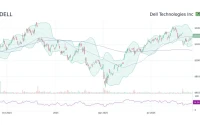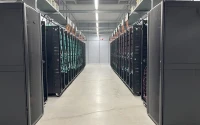So, AMD’s stock popped 25% in a single day. Let’s all take a moment to pretend we’re surprised. The market, in its infinite wisdom, saw the letters "A" and "I" next to the words "OpenAI" and "deal," and promptly lost its collective mind. The Nasdaq and S&P 500 hit all-time highs (Stock market today: S&P 500, Nasdaq notch record close as AMD's OpenAI deal sparks wild rally), champagne corks flew on Wall Street, and for a brief, shining moment, it seemed like AMD had finally, finally stepped out of Nvidia’s long, dark shadow.
Don’t get me wrong, a 25% jump is nothing to sneeze at. That’s the kind of move that makes fortunes overnight. But when you peel back the layers of breathless headlines like AMD stock skyrockets 23% as OpenAI looks to take stake in AI chipmaker and corporate press releases, what are you actually looking at? A "multiyear deal" for OpenAI to buy AMD chips that will supposedly bring in "tens of billions" in revenue. And, as the cherry on top, OpenAI gets the option to buy up to 10% of AMD.
An option. Let that sink in. This isn't just a customer placing a big order. This is a corporate behemoth putting a leash on its new favorite pet.
The Devil's in the Details, Not the Press Release
Everyone’s celebrating this as a victory for AMD. A validation of their technology. And sure, it is. But it’s also something much more sinister. This is the slow-motion absorption of a major semiconductor player into the gravity well of a single, dominant AI company. What happens to AMD’s other customers when OpenAI decides it needs every last chip coming off the line? What happens to their product roadmap when it’s being dictated by the whims of Sam Altman’s board? They're not just buying a supplier; they're buying leverage, they're buying control, they're...
This is just another bubble. No, 'bubble' is too clean—this is a grease fire fueled by marketing dollars and cheap capital. We’re looking at a company whose stock is now trading at a price-to-earnings ratio of over 95. Ninety-five! That’s not a valuation; it’s a prayer. It’s pricing in a level of flawless execution and market dominance that simply doesn’t exist in the real world. You’re betting on perfection, and in the tech world, perfection has a shelf life of about six months.
The market is acting like AMD just solved world hunger. The reality is they just signed a deal that makes them incredibly dependent on a single, massive, and notoriously demanding customer. Is that really a win for long-term stability? Or is it a golden handcuff?

And can we talk about the other "news" being used to pump this thing? The supposed talks with Intel to become a foundry customer? Give me a break. That’s like hearing the Yankees are in talks to let the Red Sox use their stadium for home games. It’s a fantastic story for the press, a way to signal that "everyone's playing nice," but it’s a strategic fantasy. Intel and AMD are blood rivals. The idea that Intel would dedicate precious foundry capacity to its chief competitor is laughable, unless the terms are so ridiculously skewed in Intel's favor that it would cripple AMD anyway. It's PR fluff, plain and simple.
A Market High on Hype
I swear, you could announce that a hamster in a wheel is now "AI-powered," and its stock—if it had one—would triple. This whole rally feels less like a calculated investment in AMD's future and more like a Pavlovian response to keywords. The market is so desperate for the next AI-fueled rocket ship that it’ll latch onto anything that glitters.
AMD’s financials are decent, sure. Over $25 billion in revenue, a current ratio of 2.5. They’re not going broke. But none of that justifies a P/E of 95. None of it justifies the assumption that this OpenAI deal is a one-way ticket to eternal riches. Remember when Peloton was the future? When every metaverse stock was a guaranteed ten-bagger? The market has the memory of a goldfish, and it's currently staring at the shiny new AI lure.
I get it, it's exciting. The idea of a real challenger to Nvidia’s throne is a compelling narrative. But this ain't it. This is a story about consolidation. It’s about one of the biggest players in the AI gold rush deciding to buy the company that sells the shovels. Offcourse, the shovel-maker’s stock is going to go up. But they’re still just selling shovels, and now they only have one customer who matters.
Then again, maybe I’m the crazy one. Maybe this time is different. Maybe the "tens of billions" will actually materialize, China will become a stable and reliable market overnight, and Intel will welcome its rival with open arms. And maybe I'll win the lottery tomorrow. It's all about the same level of probability.
So, Who Really Won Here?
Let’s be brutally honest. The big winner here isn't AMD. It's not the retail investor who jumped in at the peak, hoping to ride the wave. The winner is OpenAI. They just effectively locked down a huge chunk of the non-Nvidia GPU supply chain, tanked their competitor's (Nvidia's) stock a little, and did it all without having to spend a dime on an actual acquisition yet. They’ve turned AMD into a glorified subsidiary-in-waiting, and Wall Street threw them a parade for it. This isn't a story of competition; it's the story of a monopoly being built in plain sight. And we're all cheering it on.









